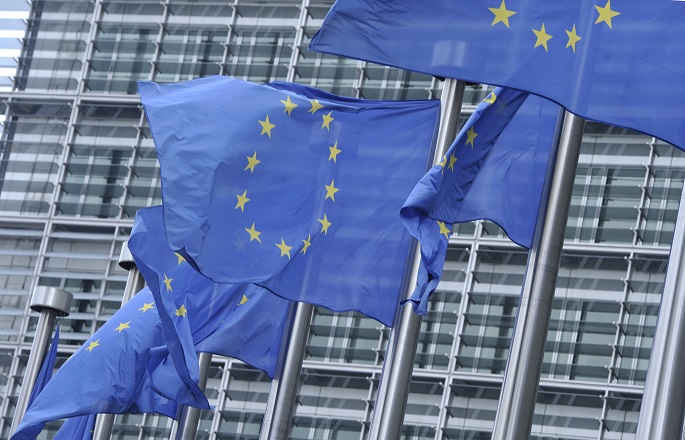EU proposes travel restriction as escalation seen in both virus cases, measures
Published : 16 Mar 2020, 23:51
Updated : 17 Mar 2020, 02:08
European Commission President Ursula von der Leyen said on Monday that she had proposed a temporary restriction on non-essential travel to the European Union (EU), as escalations have been seen in both COVID-19 cases and containment measures.
"The restriction should be in place for an initial period of 30 days, which can be prolonged as necessary," said von der Leyen.
The proposal is expected to be discussed by leaders of EU member states during a video conference on Tuesday.
BORDER CLOSURE
Following the news from the EU, the French presidency announced on Monday that measures will be announced in the coming hours on the external borders of the EU.
The decision on the EU's external borders is pending, but more European countries have joined the list of countries closing their borders to all but essential travel.
Germany has partly closed its borders with France, Austria, and Switzerland on Monday morning.
And more and more countries moved to close their borders in the hope of cutting off the cross-border transmission of the virus.
Finland, Hungary, Portugal, Switzerland became the latest countries to reintroduce measures on internal borders.
Movement restrictions, schools closure, suspension of businesses are being taken across Europe.
WAR-LIKE CRISIS
These measures are extraordinary at a time when Europe has been described by the World Health Organization (WHO) as the epicenter of the COVID-19 pandemic last Friday.
Since then, escalations have been seen in both the coronavirus cases and social distancing measures across the continent.
"We are at war," said French President Emmanuel Macron. He repeated the phrase several times in his televised address to the nation on Monday evening.
The president urged all citizens to stay home and reduce movement for at least 15 days to help the country battle the virus.
France's neighbor Belgium, a country with a population of some 11 million, has seen its coronavirus infection cases topping 1,000, with five deaths but only one recovery.
"Our country is facing an unprecedented and crucial health crisis," said King Philippe of Belgium in a speech Monday evening.
After a discussion with von der Leyen on coronavirus situation, Slovenian Prime Minister Janez Jansa welcomed the EU proposal on the bloc's external border. "Finally good news from Brussels," he wrote on Twitter.
Even more countries still remained their internal border open, states of emergency or extraordinary have been declared by some to tackle the disease. Others are preparing for similar policies.
TEST, TEST, TEST
As European countries are grappling with the epidemic, WHO Director-General Tedros Adhanom Ghebreyesus warned on Monday that the escalation in testing, isolation and contact tracing is not urgent enough. These measures are the backbone of the COVID-19 response, said Tedros.
According to the WHO chief, the most effective way to prevent infections and save lives is breaking the chains of COVID-19 transmission.
"You cannot fight a fire blindfolded and we cannot stop this pandemic if we don't know who is infected," he said, calling for every suspected case testing.
"We have a simple message for all countries: test, test, test. Test every suspected #COVID19 case," the WHO said in tweet.
Some European countries, such as France, have admitted the possible underestimate of the epidemic.
France has confirmed 6,633 coronavirus infection cases and 148 deaths by Monday evening. These figures represent 1,210 new cases of infection and 21 additional deaths in one day.
However, these data "underestimate the real number" due to the difficulty of identification and biological confirmation of all COVID-19 cases and the fact that only part of the sick is now tested, said the country's Health Ministry.
To test more suspected cases, Lithuanian Ministry of Health decided to open drive-through COVID-19 mobile testing points in its 10 municipalities starting on Monday.
And turning a park in Dublin into a drive-through testing center is also under discussion, according to Irish national radio and television broadcaster RTE on Monday.
Europe, as whole, is facing a tough mission to bring the virus under control, as among some 83,000 confirmed COVID-19 cases outside China as of Monday morning, around 56,000 are in Europe.


